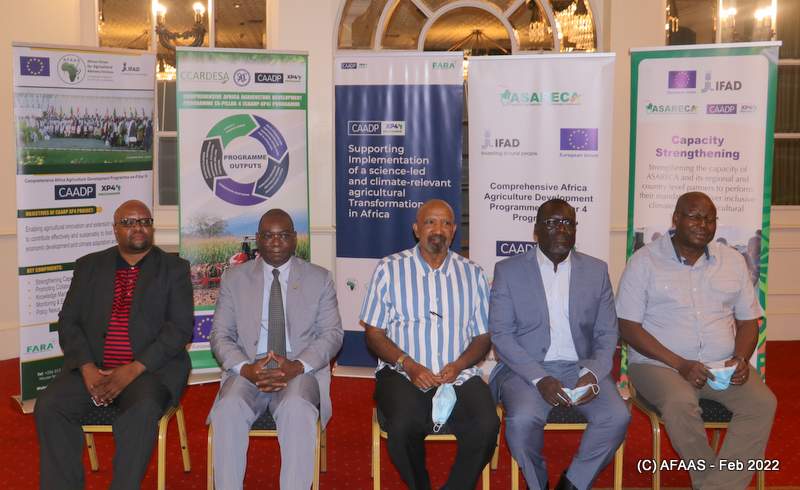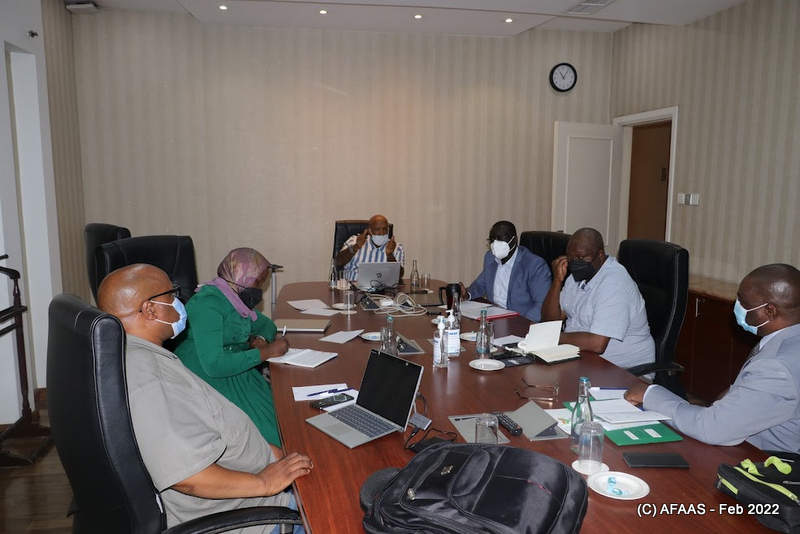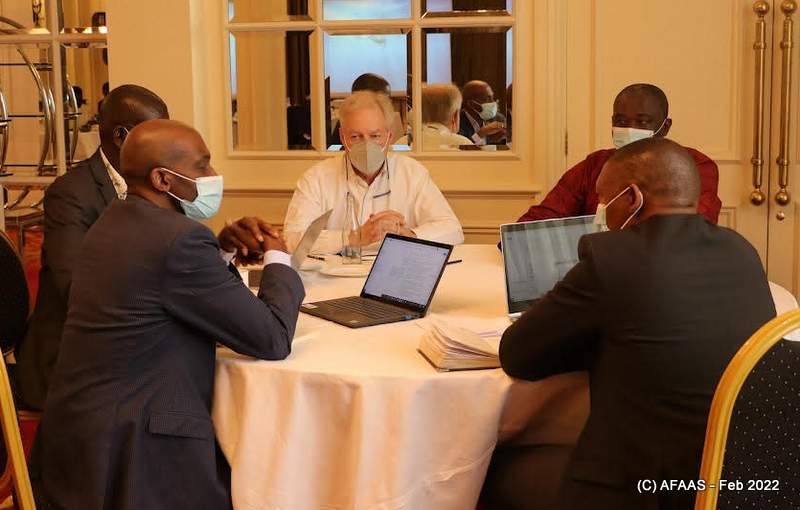
NAIROBI, KENYA: on 1st February, The African Forum for Agricultural Advisory Services (AFAAS), together with The Association for Strengthening Agricultural Research in Eastern and Central Africa (ASARECA); Centre for Coordination of Agricultural Research and Development for Southern Africa (CCARDESA); West and Central African Council for Agricultural Research and Development (CORAF); and the Forum for Agricultural Research in Africa (FARA), held a joint portfolio review meeting and other strategic meeting that lasted from 1st February to 6th February at Hilton hotel Nairobi.
The purpose of the meeting was to assess the CAADP-XP4 project implementation progress, take stock of lessons learnt, jointly plan for implementation of the project and deeper collaboration in 2022 with strategic guidance from the TC and AC, with input from the TWGs. The five partner organisations are currently implementing the CAADP-XP4 programme which is aimed at enabling agricultural research and innovation, and Extension services to contribute effectively to food and nutrition security, economic development and climate mitigation in Africa.
Comprehensive Africa Agriculture Development Programme Ex-Pillar IV (CAADP-XP4) links research and innovation with development initiatives to boost the transformation of innovation in agriculture and food systems to make them more resilient to climate change and better respond to development demands. Its objective is to enable agricultural research and innovation, including extension services, to contribute effectively to food and nutrition security, economic development and climate mitigation in Africa. The African Forum for Agricultural Advisory Services (AFAAS) and its partners comprising of Association for Strengthening Agricultural Research in Eastern and Central Africa (ASARECA), Centre for Coordination of Agricultural Research and Development in Southern Africa (CCARDESA) Central African Council for Agricultural Research and Development (CORAF) and Forum for Agricultural Research in Africa (FARA) secured resources from the European Union under the Development Smart Innovation through Research in Agriculture (DeSIRA) initiative to implement this 4-year project in Africa.
During the meeting, it was noted that the CAADP-XP4 partner organizations had achieved over 50% percent success rate mid-way the project that is expected to end in December 2023. This was evidenced due to the good progress amidst the current COVID-19 pandemic.
Dr. Malu Ndavi, the task manager for the CAADP-XP4 programme who attended virtually, urged the consortium members not to lose sight of the project focus which is to strengthen the capacity of each institution to deliver their mandates.
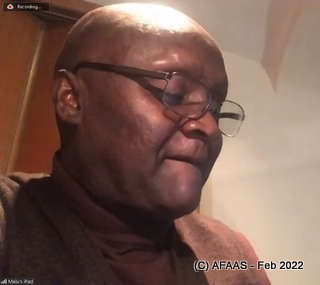 “I would like to remind you all that the CAADP-XP4 focus is to improve the capacity, effectiveness and positioning of the Regional and sub-regional Agriculture Research and Extension Pillar organizations and the National Agriculture Research Systems (NARS); promote collaboration and knowledge sharing among the organizations. We believe that enhanced capacities will spur agricultural research and innovation whilst extension services will contribute effectively to food and nutrition security, economic development and climate mitigation in Africa.”
“I would like to remind you all that the CAADP-XP4 focus is to improve the capacity, effectiveness and positioning of the Regional and sub-regional Agriculture Research and Extension Pillar organizations and the National Agriculture Research Systems (NARS); promote collaboration and knowledge sharing among the organizations. We believe that enhanced capacities will spur agricultural research and innovation whilst extension services will contribute effectively to food and nutrition security, economic development and climate mitigation in Africa.”
Dr. David Nielson, a Resource Mobilisation Consultant, recognized the consortium ( AFAAS, ASARECA, FARA, CCARDESSA, CORAF) as the most formidable institutions needed to attain the vision of African Agriculture.
It should be noted that the the CAADP-XP4 programme is currently being implemented by the five consortium members alongside the National Agricultural Research Institutes (NARIs) in their member countries across the continent.
The five project outputs are, Strengthen the capacities of the individual, continental and regional organizations in competencies needed for the successful implementation of the program (such as technical and organizational capacities in coordination, multi-stakeholder program management, resource mobilization, fiduciary processes and MEL, Multi-stakeholder Partnerships for Innovation established and in operation, Policies in support of climate relevant agriculture and food systems transformation formulated; investments increased, advocacy and market linkages strengthened, Knowledge Management: Knowledge Management & Communication for decision support, sharing innovation and advocacy related to climate relevant agriculture transformation and Effective Planning, Coordination, Monitoring, Evaluation, Learning (MEL) & Reporting.
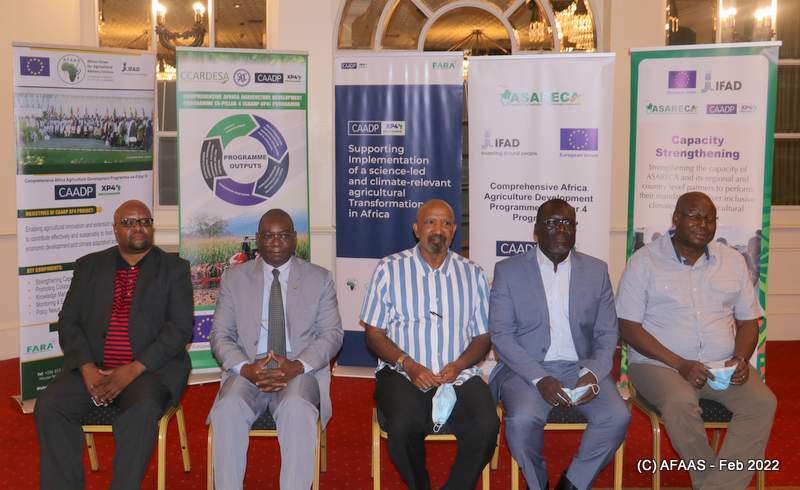

The technical committee, during their presentation to the Advisory Committee noted that therevwas a cumulative overall performance for the CAADP-XP4 programme at 60%. they also urged that there was need to revise some targets at the mid-term review and that COVID 19 had led to a substantial savings by some partner organizations which needed to be re-allocated to other activities.
The TC highlighted that Consensus building is critical for implementation of joint activities, and that Collaboration between the partners institutions had improved. They urged that Interoperability of the MEL and KM systems should be undertaken to the extent possible, to ensure institutional autonomy and also the need to Engage the private sector more in the CAADP-XP4 initiatives in order to harness their potential in commercializing climate relevant technologies. The TC additionally said Sustainable and seamless funding is critical for ensuring sustainability of CAADP-XP4 impact.
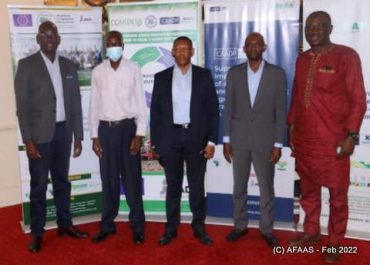
Furthermore, the TC shared some of the key joint activities 2022 which among them were Sensitization training on CD for AIS concepts, tools and approaches for staff of the five CAADP-XP4 institutions + Functional capacities, Organize an event to present experiences capitalized on the use of TAP CF and tools across 3 regions, at TAP Partner Assembly, Establish and operationalize linkages and international cooperation: NS. SS, NSS (SRO)—lesson learning platform with EU partners, Mapping of satellite data sources, Support / Backstop SROs to set up and train country policy teams on the use of PPI tool for policy assessment, advocacy on resource mobilization, Facilitate training of young scientists and AR4D practitioners through the African Foresight Academy in partnership with GFAR and many more.
Additionally, the TC endorsed the leadership of the technical working groupswith capacity development being led by ASARECA and Co-chaired by AFAAS, Partnerships and Resource mobilization will be led by CCARDESA and co-chaired by FARA, Policy and Gender will be led by CORAF and Co-chaired by ASARECA, while Knowledge Management and Communication will be led by AFAAS and Co-chaired by CCARDESA. Monitoring and Evaluation will be led by FARA and Co-Chaired by CORAF.
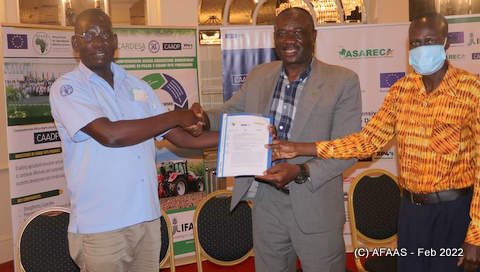
During the meeting, AFAAS handed over the leadership of the AC and TC to ASARECA who will be co-chaired by CORAF. It should be noted that for effective delivery of the CAADP-XP4 outputs, the Programme is functionally run by Technical Committee (TC) which comprises of the senior programme managers of the Pillar 4 Institutions and the technical committee which works closely with the technical working groups within institutions.
Mr. Max Olupot the outgoing chair of the technical committee appreciated the TC members and technical working groups for the spirit of collaboration with honest mutual engagement. He assured the incoming team of his total support to ensure continuous delivery of the project objectives and most importantly to galvanize the AR4D fraternity including the ONE CGIAR to pool and pull resources together.
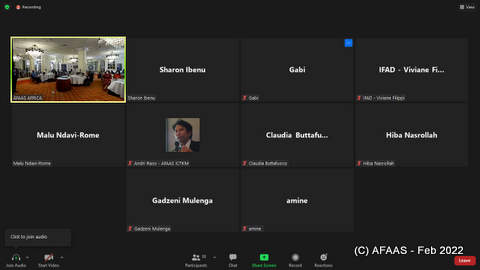 All the five CAADP-XP4 institutions retariated the proof of concept of working together is a reality. It was such a great opportunity for the AC(ED’s) TC(programme directors) and the technical working groups to share valuable lessons and experiences. The institutions also agreed on joint activities for 2022 as a clear path to achieving better together.
All the five CAADP-XP4 institutions retariated the proof of concept of working together is a reality. It was such a great opportunity for the AC(ED’s) TC(programme directors) and the technical working groups to share valuable lessons and experiences. The institutions also agreed on joint activities for 2022 as a clear path to achieving better together.














